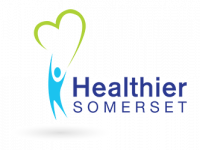Rebecca Perkins, Healthier Somerset
myCentralJersey.com
July 25, 2016
Healthier Somerset, a coalition of businesses, schools, non-profit organizations, healthcare providers, government, and faith-based organizations, is responsible for Somerset County’s Community Health Improvement Plan (CHIP.) The plan is a response to a Community Health Needs Assessment (CHNA), a process that uses quantitative and qualitative methods to systematically collect and analyze data to understand health within a specific community.
The 2016-2019 CHIP identified four priority areas: mental health and substance abuse; obesity; chronic disease; and access to care. The first three areas are easily understood, but access to care covers a range of issues.
Many people live in communities that lack healthcare services. Rural and inner city areas are often understaffed, so patients may have to wait for appointments or travel long distances to see their healthcare providers.
The ability to pay for healthcare is a major barrier for many people in this country, and especially for New Jersey residents. Although low-income patients are entitled to receive healthcare benefits through Medicaid, it’s often difficult to find a provider who accepts Medicaid benefits. In a study conducted by the U.S. Centers for Disease Control, just 38.7 percent of New Jersey physicians said they accepted new Medicaid patients in 2013 — far below the national average of nearly 69 percent. New Jersey is the only state where fewer than half of the doctors accepted new Medicaid patients.
Low-income patients often have difficulty with transportation, either because of lack of a vehicle or lack of access to public transportation, so finding a provider and scheduling a visit may take careful planning. It’s also hard to coordinate time off from work.
READ: Healthier Somerset celebrates six years of moving forward
READ: Healthier Somerset finalizes community health improvement plan
READ: U.S. Attorney General speaks about tolerance and acceptance
Cultural characteristics may provide another barrier to accessing healthcare. Non-English-speaking patients may not be able to communicate well, but language is often not the only problem. Not all cultures speak frankly about their health, even to their providers. Offering a native speaker to interpret can help not only with the language, but also with an understanding of the medical issues that would not otherwise come about.
Treating health issues in the LGBT population is another area that is acclimating to the demands from a more openly diverse community. According to the US Office of Disease Prevention and Health Promotion, social determinants affecting the health of LGBT individuals largely relate to oppression and discrimination.
Examples include legal discrimination in access to health insurance, employment, housing, marriage, adoption, and retirement benefits; lack of laws protecting against bullying in schools; lack of social programs targeted to and/or appropriate for LGBT youth, adults, and elders; and shortage of health care providers who are knowledgeable and culturally competent in LGBT health.
This discrimination takes a severe toll on health. LGBT youth are 2 to 3 times more likely to attempt suicide and are more likely to be homeless. Lesbians and bisexual females are less likely to get preventive services for cancer and are more likely to be overweight or obese. And LGBT populations overall have the highest rates of tobacco, alcohol, and other drug use.
The CHIP Task Force on Access to Care hopes to improve the access to and awareness of health care services for those living and working in Somerset County, including underserved populations, by increasing the utilization of existing primary care services in Somerset County; creating a network of Community Health Workers who represent the diverse populations in our community; and Increasing opportunities to address barriers to health insurance navigation for underserved community members.
The 2016-2019 CHIP is available on the Healthier Somerset website (www.HealthierSomerset.org ). We invite all organizations who share our goal of a healthier Somerset County to join the coalition.
Rebecca Perkins is the project manager for Healthier Somerset
